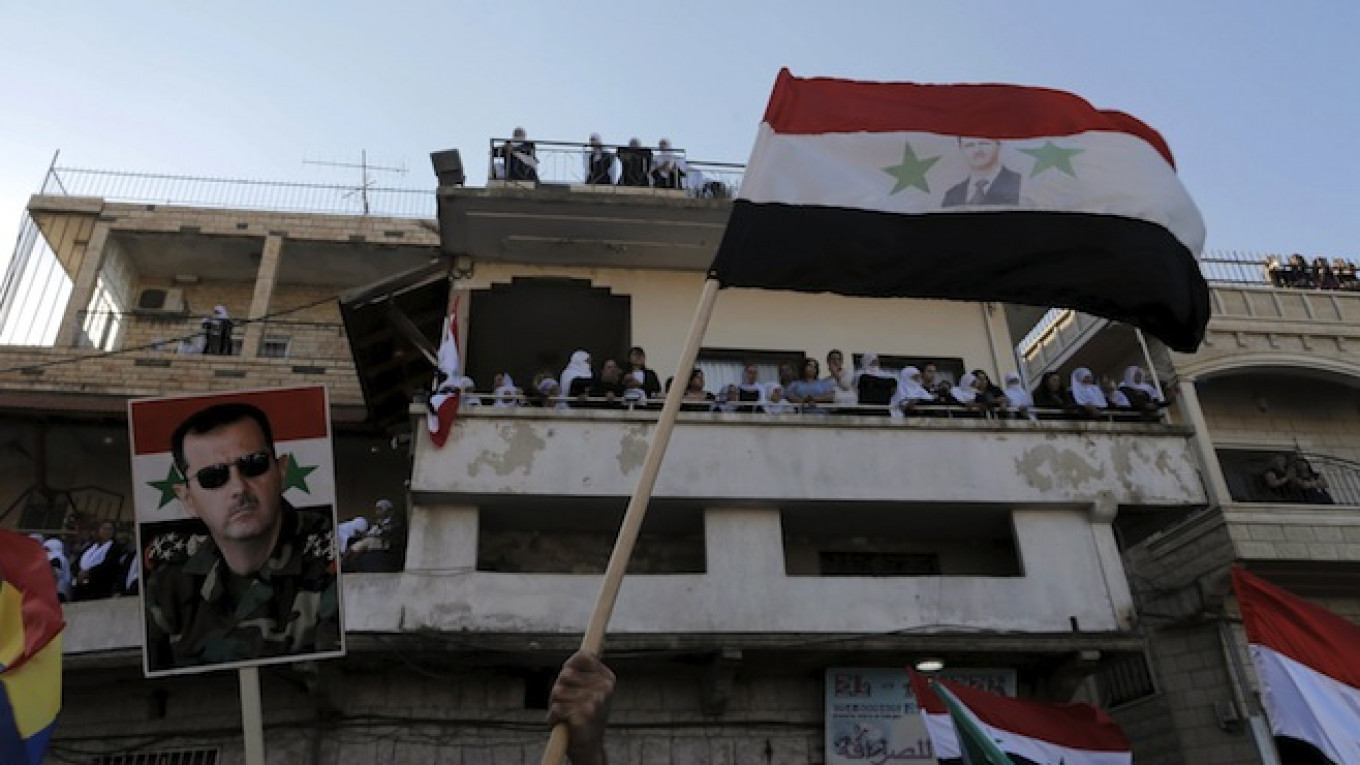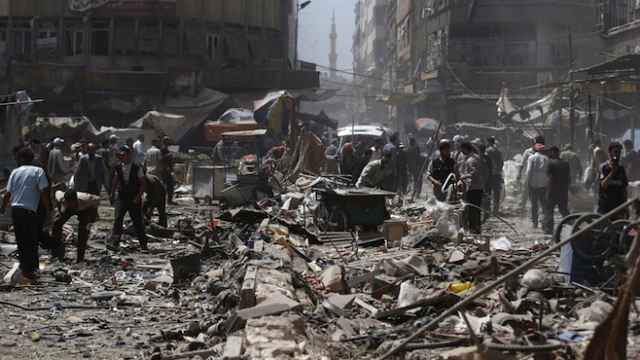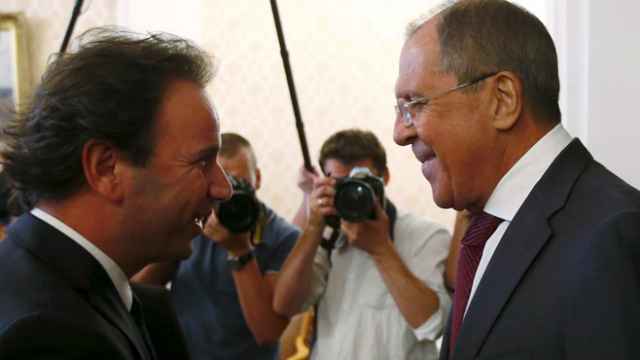Russian President Vladimir Putin on Friday said Syrian President Bashar al-Assad is ready to hold snap parliamentary elections and could share power with "healthy" opposition.
Putin's comments are the closest in weeks to outlining what Moscow might see as an acceptable way forward on dealing with Assad. Russia, along with Iran, has been Assad's key international ally in the war that has been raging in Syria for four-and-a-half years and in which a quarter of a million people have been killed.
Moscow has made clear it does not want to see Assad toppled and has seized on gains made by Islamic State in Syria and Iraq to urge his foreign foes, including the United States and Saudi Arabia, to work with Damascus to combat the common enemy.
"We really want to create some kind of an international coalition to fight terrorism and extremism," Putin told journalists on the sidelines of the Eastern Economic Forum in Russia's Far East hub of Vladivostok, adding he had spoken to U.S. President Barack Obama on the matter.
"We are also working with our partners in Syria. In general, the understanding is that this uniting of efforts in fighting terrorism should go in parallel to some political process in Syria itself," Putin said. "And the Syrian president agrees with that, all the way down to holding early elections, let's say, parliamentary ones, establishing contacts with the so-called healthy opposition, bringing them into governing."
Moscow wants the U.S.-led coalition carrying out air strikes on Islamic State positions to coordinate with the Syrian and Iraqi armies and moderate anti-Assad rebel groups on the ground, as well as Kurdish forces.
Assad's foes have refused to cooperate with Damascus, fearing that would help legitimise his rule in Syria, where the West and Gulf states say he is part of the problem, not the solution, and must go.
A flurry of recent high-level diplomatic contacts have so far failed to yield a breakthrough on the key point of contention in the conflict.
"If it's impossible today to organize joint work directly on the battle field between all those countries interested in fighting terrorism, it's indispensable to at least establish some sort of coordination between them," Putin said.
He added the chiefs of general staff of armed forces of countries "sitting close" to the conflict visited Moscow recently on that.
A Message from The Moscow Times:
Dear readers,
We are facing unprecedented challenges. Russia's Prosecutor General's Office has designated The Moscow Times as an "undesirable" organization, criminalizing our work and putting our staff at risk of prosecution. This follows our earlier unjust labeling as a "foreign agent."
These actions are direct attempts to silence independent journalism in Russia. The authorities claim our work "discredits the decisions of the Russian leadership." We see things differently: we strive to provide accurate, unbiased reporting on Russia.
We, the journalists of The Moscow Times, refuse to be silenced. But to continue our work, we need your help.
Your support, no matter how small, makes a world of difference. If you can, please support us monthly starting from just $2. It's quick to set up, and every contribution makes a significant impact.
By supporting The Moscow Times, you're defending open, independent journalism in the face of repression. Thank you for standing with us.
Remind me later.






